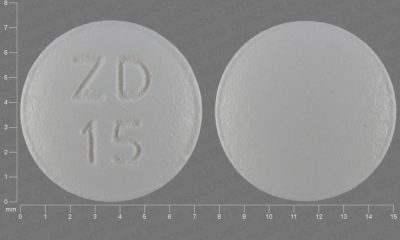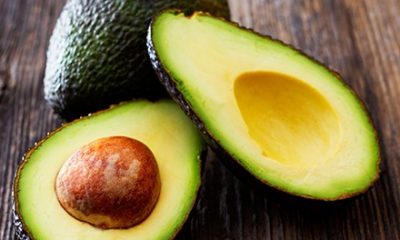Health
Cinnamon and diabetes: how to use it to lower your blood sugar level

Discover how to use Cinnamon for diabetes.
Why and how to use cinnamon to lower the level of sugar and fat in the blood?
Cinnamon, also known as “poor man’s insulin”, has long been known for its action on diabetes and cholesterol. Let’s see here why it is advisable to consume cinnamon when you have diabetes, and how to take cinnamon for an effective effect.
Be aware, however, that under no circumstances should you stop taking the medications prescribed by your doctor, and take advice from him if you want to take cinnamon.
This way to buy cinnamon, the aromatic bark of the cinnamon tree used in cooking and therefore as a natural remedy against diabetes.
What is diabetes?
Diabetes is chronic hyperglycemia, an excess of sugar in the blood causing blood sugar that is too high compared to the average. This excess of sugar is the consequence of poor assimilation, poor use and poor storage of sugars by the body.
Indeed, in a normal organism, the carbohydrates in the diet are transformed into glucose, the pancreas then detects the increase in blood sugar and will produce insulin.
This insulin helps glucose to enter body cells (muscles, organs, etc.) and the liver where it will be processed and stored. Blood sugar levels then decrease in the blood.
For people with diabetes, this regulatory system does not work and must be supported by injections of insulin through injections.
There are mainly two types of diabetes :
- Type 1 diabetes: or insulin-dependent diabetes, about 6% of diabetics. It is characterized by insufficient production of insulin.
- Type 2 diabetes: or non-insulin-dependent diabetes, 92% of diabetics. It is characterized by initially an insulin resistance of certain organs which prevent the entry of insulin.
This resistance to the action of insulin leads to an overproduction of insulin by the pancreas to compensate, a pancreas which gets tired and after twenty years, no longer produces enough insulin: this is the insulin deficiency.
You should know that this type of diabetes increases the risk of cardiovascular disease by 2 to 4 times (heart attack, high blood pressure, etc.).
Can cinnamon lower your blood sugar
A simple answer would be: yes! But let’s dig into the subject a bit.
To go further, find out what are the virtues of cinnamon.
For the little story :
It is a happy mistake that led Western researchers to find the effect of cinnamon on blood sugar (although this effect has been known for ages in Asia).
Indeed, we owe this discovery to Dr Richard A. Anderson, who originally studied the properties of chromium. USDA researcher, senior scientist at Beltsville Human Nutrition Research Center, Beltsville, and physician.
He has published over 230 scientific manuscripts and presented over 200 presentations at regional, national and international meetings around the world.
While studying the effects of chromium on diabetes, he realizes that apple pie stimulates insulin activity. No sense, the apple pie contains only a little chromium and a lot of sugar!
Anderson then thinks of the effect of apples, but quickly realizes that this effect is due to another ingredient in the pie… cinnamon!
The scientist will therefore focus his studies on the effects of cinnamon on diabetics. Many other scientists will follow, all convinced that cinnamon is the best hope for a natural cure for diabetes.
What evidence for the effect of cinnamon on diabetes?
Following Dr Anderson’s discovery, hundreds of studies are being conducted on the bark by hundreds of scientists. Finally, it is Dr Anderson who will publish in 2010, a scientific article taking stock of the 16 main studies on cinnamon.
Of these 16 studies, 11 show a significant effect of the spice, and 5 show little or no influence on the drop in blood sugar.
CASES WHERE CINNAMON HAS LITTLE OR NO EFFECT:
Regarding these latest inconclusive or inconclusive studies, patients were taking metformin, one of the most common treatments for type 2 diabetes.
According to Anderson: “Metformin acts like cinnamon, increasing insulin sensitivity. If you take enough metformin to manage blood sugar, cinnamon will not affect”.
The poor or inconclusive studies have shown no effect on young people with type 1 diabetes, a logical result, because people with type 1 diabetes have little or no insulin, and cinnamon is not a substitute for it. insulin.
A study has shown that cinnamon does not lower blood sugar levels in healthy people without any diabetes problem.
There are still studies, conducted on other patients that have not led to conclusive results.
CASES WHERE CINNAMON HAS A SIGNIFICANT EFFECT:
The most significant study was conducted by Dr Anderson with a team of researchers from the Peshawar School of Agriculture.
This study was carried out on 60 middle-aged patients suffering from type 2 diabetes, divided into 6 groups. Group 1 took 2 capsules of cinnamon per day, group 2 took 6 and group 3 took 12. The other groups had the same amounts of capsules, but a placebo.
Treatment was carried out for 40 days in all groups, and the capsules contained 500 mg of cinnamon (approximately 1/4 teaspoon). The patients ate as usual while taking their diabetes medication, but not metformin.
The result: in the groups taking cinnamon, there was a drop in blood sugar levels of 18 to 29%. We also observed a drop in triglycerides from 23 to 30%, in total cholesterol from 13 to 26%, and bad cholesterol (LDL cholesterol) from 10 to 24%.
A study conducted by researchers at the University of Pomona in California (USA) on 543 patients with type 2 diabetes arrived at the same conclusions, showing besides that cinnamon increases the level of good cholesterol (HDL).
How does cinnamon affect blood sugar
The magic compound that comes into play is called: polymer methylhydroxychalcone (MHCP), the most active compound in the bark.
Indeed, studies by Professor Anderson have shown that this substance increases the metabolism of glucose up to 20 times, the process which converts sugar into energy. As such, cinnamon is the ally of diets!
Cinnamon facilitates the work of insulin and therefore helps to get sugar into cells. As such, it would affect comparable to certain drugs such as thiazolidinediones (Actos®, Avandia®, etc.), which reduce insulin resistance.
Also, MHCP is a formidable antioxidant, from a class of polyphenols found in cocoa beans, which also has an impact on diabetes.
Antioxidants prevent the formation of free radicals, which damage the DNA of cells and which therefore lead to chronic diseases, including diabetes. There are many studies on the action of antioxidants on diabetes and cholesterol reduction.
What variety of cinnamon for diabetes?
As I explain in our article on how to lose weight with cinnamon, there are two varieties, which come from the bark of two very similar but different tree species:
- Cinnamomum Verum, known as Ceylon cinnamon, also known as real cinnamon,
- Cinnamomum aromaticum or Cinnamomum cassia, known as cinnamon from Indonesia or China, also known as false cinnamon.
Let’s be clear: when it comes to lowering blood sugar and cholesterol, variety doesn’t matter, they have the same effect. That said, for long term use, we still recommend Ceylon cinnamon.
Indeed, their health benefits are the same, with one exception that makes all the difference: coumarin. It is the coumarin concentration that differs in the two species.
Ceylon cinnamon bark (Cinnamomum Verum) hardly contains any, but on the other hand, Chinese cinnamon bark (Cinnamomum cassia) is rich in it.
Except that coumarin is potentially toxic to the liver because it has hepatotoxic properties. So for long term consumption, prefer Ceylon cinnamon.
How to take cinnamon?
The different ways to do it:
It should be consumed daily, whatever the way. We recommend doses between 1 and 4 g (between 1/2 and 1 teaspoon per day) of Ceylon cinnamon per day, even if studies have not made it possible to update an ideal dosage. You can consume it:
- For breakfast: in cottage cheese, on your cereals, on a fruit salad, etc.
- In your savoury dishes: yes, especially in the Maghreb and in the East, it is found in salty dishes: couscous, tagines, etc.
- In the preparation of your desserts: to add directly to your preparations.
- Like a drink: in milk ( recipe for cinnamon milk ), in your tea, fruit juice (apple, orange, grape, etc.), smoothies, etc.
You can also just make an infusion of cinnamon, by boiling a cup of water, then infusing a few cinnamon sticks, or a teaspoon of ground cinnamon, covered, for 10 min.
Do not hesitate to sweeten with honey, the benefits of both are very beneficial, discover, on this subject, our article on the virtues of honey with cinnamon.
Cinnamon has a sweet flavour that will replace sugar in all your preparations.
Does cinnamon work quickly?
The first effects on blood sugar are felt after 2 weeks of daily absorption.
The first effects on cholesterol and triglycerides may take months to appear.
Contraindication and side effects:
The consumption of cinnamon is not without risk, we have devoted an article detailing the possible problems associated with the consumption of cinnamon, where you will find the contraindications, drug interactions, side effects, etc.
If using Indonesian cinnamon (Cinnamomum cassia), do not exceed 1/2 teaspoon per day. The coumarin present in this variety is an anticoagulant, be careful if you are on anticoagulant treatment.
Rarer, coumarin, in large amounts and over long term consumption can cause liver damage.
Excessive consumption of cinnamon can cause side effects: increased heart rate increased blood pressure and palpitations.
To sum up “cinnamon and diabetes”:
Should we consult a doctor? Yes, yes, and again yes, never stop treatment and seek the advice of your doctor before embarking on any cure.
Is it effective? Yes, but not for everyone.
For who? People with prediabetes, metabolic syndrome or type 2 diabetes, if you are not taking metformin. It is possible to consult your doctor to see if it is possible to lower the doses of metformin by adding cinnamon to your diet.
How? ‘Or’ What? Add cinnamon (preferably Ceylon) every day to a healthy diet and exercise for 20 minutes per day.
Health
13 Benefits of sorrel and side effects

Table of Contents
Health
Benefits of hyaluronic acid for acne

- Methods of treatment
- FREQUENT QUESTIONS
- What is the main indication of hyaluronic acid in acne scars?
- When is the effect of hyaluronic acid noticeable?
- How is hyaluronic acid applied?
- How many hyaluronic acid sessions are needed to treat facial acne scars?
- How is the face after doing the filling session?
- Is it a painful procedure?
- Can fillers be combined with other acne scar treatments?
- Is the effect of hyaluronic acid definitive?
Discover the benefits of hyaluronic acid for acne.
In most acne scars there is a loss of skin volume ( atrophy ), which gives the area where they form a depressed or “engraved” appearance.
This atrophy is the product of a lack of hyaluronic acid and collagen in the dermis, the intermediate part of the skin, responsible for giving the turgidity, volume, and elasticity of healthy skin.
Methods of treatment
There are different methods to treat atrophic scars, which we could classify into two different groups according to their speed of action:
· Immediate effect. They are called fillers, biocompatible substances that can be injected into the skin to give volume to areas that have lost it.
Among them, those of hyaluronic acid, polylactic acid, or calcium hydroxyapatite stand out among others. Its turgid effect is immediate, filling cavities, furrows, and atrophic areas of the skin with very natural results. The duration of these materials is limited, so periodically (every 6 – 18 months ) it is common to practice a new session.
· Delayed effect. It implies that they promote the synthesis of collagen and ground substance of the dermis. It is worth mentioning the fractional lasers (ablative or non-ablative) and the intermediate and deep peels.
The main advantage of these methods is that their effect is permanent once the optimal point of improvement has been reached, which is not immediate but after practicing several sessions of the procedure.
Hyaluronic acid is indicated in the treatment of atrophic, depressed, and ice-pick acne scars. There are different densities of hyaluronic acid, designed to treat different forms of atrophy or loss of volume.
For the treatment of moderate or ice pick acne scars, it is useful to use low and intermediate densities; and to recover a large volume in especially atrophic areas, it is possible to use higher densities to cover the maximum repertoire of defects.
The main advantages of using hyaluronic acid lie in its immediate action, its durability, its biocompatibility, and its minimal allergenic potential. This molecule can fill in atrophic scars, providing optimal volume immediately and in the short term, promoting collagen synthesis in the long run.
In this way, the irregularity on the surface of the skin is substantially reduced after the application of hyaluronic acid, improving the overall appearance of the skin in the treated area.
Another positive aspect of using hyaluronic acid is that it usually only requires a single application session. Likewise, fillers are one of the best tolerated aesthetic procedures since they have a minimal rate of adverse effects and the pain caused is minimal if a precise technique is followed. Slight erythema (redness) that lasts 2-4 hours after the procedure is common and can be reduced with the application of cold compresses.
According to studies published by Halachmi et al, the satisfaction rate and results in patients with atrophic acne scars and ice pick treated with hyaluronic acid are excellent.
The only limiting aspect of hyaluronic acid fillers is their duration. This molecule is naturally degraded in the skin, its effect persisting for 6-18 months depending on the density of hyaluronic acid used and the indication for which it has been applied.
Specifically, for acne scars, the duration of hyaluronic acid is the maximum possible, since it is retained within the fibrosis that partitions the scars. It should be remembered that, in the long term, this molecule favors the synthesis of collagen, so that the perceptible effect is progressively more durable as different sessions are carried out.
FREQUENT QUESTIONS
What is the main indication of hyaluronic acid in acne scars?
Its main effect is to fill in depressed scars and regularize the appearance of the skin surface.
When is the effect of hyaluronic acid noticeable?
The effect of hyaluronic acid is immediate and noticeable at the end of its application. Over a week or so, the hyaluronic acid settles in the applied area and the surface where it has been applied progressively becomes even more regular.
How is hyaluronic acid applied?
The procedure is performed in the Dermatology consultation through microinjections applied under the scars to be treated. An anesthetic cream is usually used before the session and it is very tolerable, with minimal discomfort.
How many hyaluronic acid sessions are needed to treat facial acne scars?
In general, if they are not very deep or extensive, one is enough.
How is the face after doing the filling session?
The corrective effect of hyaluronic acid is immediate. At the end of the session, most atrophic and depressed scars have recovered all or part of their lost volume. Immediately after the session, it is usual to see some redness in the treated areas and slight swelling, which usually lasts between 2-4 hours.
It is possible, although infrequent, that during the procedure a minimal punctual hematoma may appear in an injection area, which will disappear spontaneously over a week or so.
Is it a painful procedure?
Filling with hyaluronic acid after application of anesthetic cream is one of the most well-tolerated and appreciated aesthetic procedures, with an excellent satisfaction rate for the patient.
Can fillers be combined with other acne scar treatments?
Yes. They can be used concomitantly with ablative/non-ablative peels or lasers, or even botulinum toxin if desired. It is recommended, yes, to carry them out in different sessions.
Is the effect of hyaluronic acid definitive?
No. Although with each session there is a certain accumulation of the effect due to the collagen synthesis promoted by hyaluronic acid, it is advisable to perform a filler every 6-18 months depending on the indication and the area to be treated.
Health
10 Benefits Of Feijoa Or Pineapple Guava

Table of Contents
- What is feijoa or pineapple guava?
- Knowing the flavor of feijoa
- Nutritional contributions of feijoa.
- 10 health benefits of feijoa.
- How to eat feijoa?
- Discover the 10 Benefits Of Feijoa Or Pineapple Guava.
Feijoa can have a wide range of health effects, including aiding weight loss, improving digestion, lowering cholesterol levels, boosting the immune system, increasing bone strength, lowering blood pressure, optimizing nutrient absorption, balance metabolism, increase circulation, stimulate cognitive function and regulation of blood sugar levels, among other benefits of feijoa.
There are very few reported side effects, although allergies to this fruit do exist, and some reports of gastrointestinal problems and low blood sugar levels have been documented.
That said, for most people who consume this fruit in moderation, it offers far more health benefits than side effects, so there’s no running away from the benefits of feijoa.
What is feijoa or pineapple guava?
Feijoa has another name in many parts of the world: pineapple guava. Scientifically known as Acca sellowiana, the plant that produces this fruit is a shrub or small tree native to regions of South America, such as Argentina, Brazil, and Colombia. It is now widely cultivated for its sweet fruit, as well as for ornamental purposes.
The fruit is green and ellipsoid-shaped and is about the size of a plum or a small avocado.
The unique flavor and impressive supply of nutrients make feijoa highly sought after as it can have many different culinary applications, from an ingredient in smoothies to cocktails, desserts, chutneys, and cooked fruit dishes.
Knowing the flavor of feijoa
Feijoa has a very unique flavor, with sweet, sour, and bitter elements, which many people compare to guavas and pineapples, as its common name implies, but it also has a slight strawberry flavor. In some cultivars, there are very subtle notes of mint, which can increase as the fruit ripens.
To ensure the best flavor and flavor of the feijoa, the fruits should be collected the day they fall from the tree, as this indicates the ideal ripeness.
Before that, the taste is more bitter, while after the fruit falls, it can become too ripe and unpleasant to eat.
Nutritional contributions of feijoa.
Whether you are eating the fruit for its benefits or its exotic flavor, you will benefit from its impressive nutrient content.
The calorie content per serving (100 grams) is just 55, which is unusually low, this tropical fruit also contains significant levels of vitamin C (over 50% of your daily recommendation per serving), as well as a diverse selection of B vitamins. and traces of vitamin E, K, and A.
In terms of mineral content, feijoa contains moderate levels of copper, manganese, magnesium, potassium, iron, and calcium.
A single serving of this fruit also delivers more than 15% of your recommended daily dietary fiber, in addition to various phytochemicals, phenols, and antioxidants.
10 health benefits of feijoa.
People who regularly consume this fruit to make themselves available to the benefits of feijoa will receive health favors related to blood pressure, cholesterol, obesity, immune health, oxidative stress, metabolism, osteoporosis, indigestion, diabetes, circulation, cognitive function, and nutritional deficiencies.
1.- Increase immunity
With a strong supply of vitamins and minerals in the fruit, the benefits of feijoa allow regular consumption to give your immune system a much-needed boost.
Vitamin C can stimulate the production of white blood cells, the body’s first line of defense, while also acting as an antioxidant to search for free radicals; a single serving of pineapple guava has more than 50% of your recommended daily vitamin C.
2.- Regulates blood pressure
Potassium-rich foods are important for people who suffer from high blood pressure and therefore are at high risk for cardiovascular disease, atherosclerosis, and stroke.
Potassium is a vasodilator, which means that it can reduce stress on blood vessels and arteries, and generally relieve stress on the cardiovascular system.
3.- Digestion AIDS
High levels of dietary fiber (about 17% of your recommended daily fiber per serving) mean that this fruit is capable of optimizing digestion by stimulating peristaltic movement and enhancing nutrient absorption.
This can help ease symptoms of indigestion, constipation, bloating, cramps, and a general upset stomach.
4.- Reduces cholesterol
In addition to improving digestion, dietary fiber is also directly linked to lower cholesterol levels, particularly “bad” cholesterol, which can increase your risk of heart disease.
By removing this cholesterol from the arteries and blood vessels, it lowers the risk of blood clots, heart attacks, and strokes.
5.- Improve Cognition
The antioxidants present in feijoa have been associated with increased memory and retention, better focus, and a lower risk of neurodegenerative diseases, such as mental illnesses such as Alzheimer’s and dementia; antioxidants can seek out and neutralize free radicals in neural pathways before they can cause plaque buildup.
6.- Increases metabolism
The B vitamins are incredibly important for the overall functioning of the body, especially when it comes to metabolic activities such as the synthesis of proteins and red blood cells, the production of hormones, the stimulation of the functioning of the nervous system, and the generation of energy within cells. . Fortunately, feijoa benefits from moderate levels of numerous B vitamins.
7.- Improves bone strength
With significant levels of manganese, copper, iron, calcium, and potassium, this tropical fruit is very effective in increasing bone mineral density and helping prevent the onset of osteoporosis as you age. This can increase your energy levels and keep you more active and capable in your later years.
8.- Control diabetes
Research has shown that eating feijoa can help regulate blood sugar levels, due to its low level of calories and carbohydrates, which can help regulate the body’s production and release of insulin.
9.- Increase circulation
Although there is a relatively small amount of iron present in feijoa, it can still aid red blood cell production and circulation, while the metabolic boost from vitamin B can also stimulate blood flow. This means greater oxygenation in critical areas of the body and higher energy levels.
10.- Promotes weight loss
There are only 55 calories in a 100 gram serving of the feijoa, but plenty of dietary fiber and nutrients. Combined with the low level of carbohydrates, this means that the body will feel full and access a significant supply of nutrients without adding too many calories or sugar to your daily intake. This can have a positive impact on weight loss goals and avoid overeating or snacking between meals.
How to eat feijoa?
The skin of the pineapple feijoa or guava fruit is edible, but many people prefer to cut the fruit in half, such as avocado, remove the seeds, and then scoop out the soft, sweet pulp with a spoon. However, simply slicing the fruit, without removing the skin, can deliver even more dietary fiber.
The bitter taste mainly occurs near the skin of the fruit, so if you want a sweeter snack, remove the skin entirely. The fruit is at ideal maturity when the pulp of the seed is completely clear.
As this fruit tends to ripen very quickly, there may be some brown or discoloration near the center, but this does not mean that the fruit is rotten and that the creamy flesh is perfectly safe to eat.
Avoid eating pineapple guavas that are more than half golden on the inside, as they may have started to go bad.
-

 Benefits5 months ago
Benefits5 months agoThe Benefits of Joining Gym Lumolog – Improve Your Fitness & Health
-

 Food1 year ago
Food1 year ago10 + Benefits of carrot juice and side effects
-

 Health1 year ago
Health1 year ago50 Super Healthy (And Very Often Cheap) Foods
-

 Health1 year ago
Health1 year ago5 Shocking health benefits of kinkeliba and side effects
-

 Health1 year ago
Health1 year ago15 health benefits of soursop leaves tea and side effects
-

 Food1 year ago
Food1 year ago8 shocking benefits of leek juice and side effects
-

 Health1 year ago
Health1 year ago15 Benefits of lipton tea and side effects
-

 Health1 year ago
Health1 year agoBenefits of guava leaves Sensually












